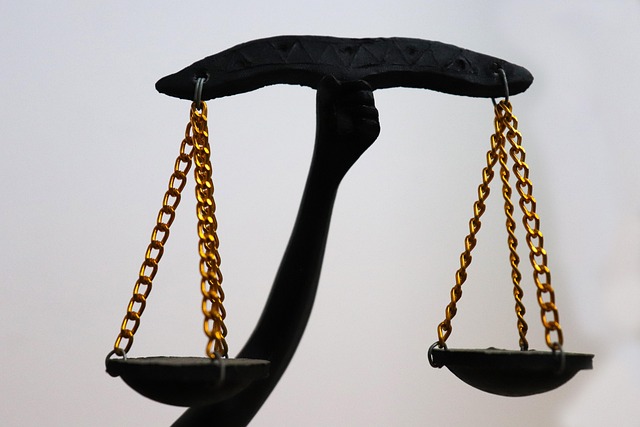Corporate crime investigations in complex administrative law cases demand meticulous scrutiny of white-collar offenses like fraud, embezzlement, and antitrust violations. These high-stakes scenarios involve interpreting regulatory ambiguities, proving intent, and assessing corporate liability. Specialized knowledge in accounting, finance, and digital forensics is required to trace illicit activities. Balancing thorough investigation with privacy rights is crucial. The legal framework governs stringent procedures with multiple stakeholders, including law enforcement and public prosecutors. Evidence collection and preservation, especially in complex financial cases, are key to achieving justice. Common issues like spoliation must be addressed. High-profile scandals underscore the need for robust document retention, internal controls, and ethical training to mitigate legal exposure.
Corporate crime investigations are complex, demanding a nuanced understanding of administrative law cases and their common issues. This article provides an in-depth overview, focusing on key aspects such as legal frameworks, evidence collection strategies, and lessons from high-profile corporate scandal inquiries. By examining real-world scenarios, we explore the challenges posed by white-collar crimes, offering insights into effective investigative practices for professionals navigating this intricate landscape.
- Understanding Corporate Crime Investigations: An Overview of Administrative Law Cases
- Common Challenges in Investigating White-Collar Crime
- Legal Framework and Authorities for Corporate Crime Probes
- Strategies for Effective Evidence Collection and Preservation
- Lessons Learned from High-Profile Corporate Scandal Investigations
Understanding Corporate Crime Investigations: An Overview of Administrative Law Cases

Corporate crime investigations delve into complex administrative law cases, where understanding the nuances is paramount. These cases often revolve around white-collar offenses, such as fraud, embezzlement, and antitrust violations, which can have significant economic and reputational impacts on organizations. Common issues in these high-stakes cases include interpreting regulatory ambiguities, proving intent, and assessing corporate liability, especially when the lines between executive authority and criminal behavior blur.
The strategic approach to these investigations involves a meticulous examination of company policies, financial records, and internal communications, often requiring sophisticated legal arguments. A winning challenging defense verdict in such cases not only safeguards the organization’s interests but also underscores the importance of robust compliance programs and ethical corporate governance.
Common Challenges in Investigating White-Collar Crime

Investigating white-collar crime presents a unique set of challenges that often distinguish them from more traditional criminal cases. One of the primary hurdles is the complex nature of financial transactions and corporate structures involved, making it demanding to trace illicit activities and establish guilt. This complexity can lead to lengthy investigations, requiring specialized knowledge in accounting, finance, and digital forensics.
Moreover, white-collar defense strategies are notorious for their intricate legal maneuvering, utilizing technical loopholes and interpreting laws to delay proceedings. Balancing the need for thorough investigation with respect for individual rights and privacy becomes paramount. Maintaining the integrity of evidence while navigating a labyrinthine web of corporate and individual clients is essential to securing justice without sacrificing an unprecedented track record of successful cases.
Legal Framework and Authorities for Corporate Crime Probes

Corporate crime investigations are governed by a robust legal framework designed to deter and penalize misconduct within organizations. These probes often involve intricate procedures and authorities, with various bodies playing crucial roles in uncovering and prosecuting such offenses. The primary responsibility lies with law enforcement agencies, who conduct thorough investigations based on evidence gathered through subpoenas, searches, and interviews.
In many jurisdictions, administrative law cases form a significant portion of corporate crime inquiries. Common issues in these cases encompass financial misreporting, breach of regulatory requirements, and corporate governance failures. Moreover, the involvement of public prosecutors, tasked with protecting the interests of both the state and corporate and individual clients, is essential in ensuring fair trials and upholding the rule of law. This multifaceted approach, involving both philanthropic and political communities, is vital in combating white collar and economic crimes.
Strategies for Effective Evidence Collection and Preservation

In corporate crime investigations, evidence collection and preservation are paramount to achieving justice and ensuring a robust legal outcome. One of the primary strategies is to maintain a meticulous chain of custody for all physical and digital evidence. This involves documenting every step of the collection process, from initial discovery to final submission, to prevent tampering or alteration. For instance, in white-collar defense cases, which often involve complex financial transactions, preserving electronic records requires specialized forensic techniques to extract data without impacting its integrity.
Addressing common issues in administrative law cases is crucial here. Issues such as spoliation of evidence—intentional destruction or failure to preserve relevant documents—can significantly hinder investigations. Therefore, legal professionals must be proactive in educating clients about their obligations to preserve potential evidence and the consequences of non-compliance. This includes implementing robust internal protocols for document retention and ensuring that employees are trained on proper data handling practices, thereby establishing an unprecedented track record of effective evidence management for both corporate and individual clients.
Lessons Learned from High-Profile Corporate Scandal Investigations

High-profile corporate scandal investigations offer a wealth of insights into common issues in administrative law cases. One key lesson is the importance of thorough document retention and chain of custody. Companies often face significant legal repercussions when critical documents are lost, altered, or not properly tracked during an investigation – a problem that can be mitigated through robust data management protocols.
Additionally, these investigations highlight the need for proactive compliance programs. Many scandals stem from inadequate internal controls and a lack of ethical training. For his clients facing administrative law challenges, general criminal defense strategies focusing on winning challenging defense verdicts must incorporate lessons learned from these high-profile cases. By implementing stricter policies, enhancing transparency, and fostering a culture of integrity, corporations can better navigate the complex landscape of regulatory compliance and mitigate potential legal exposure.
Corporate crime investigations are complex, requiring a nuanced understanding of administrative law cases and their unique challenges. By navigating common issues in these legal frameworks, investigators can strengthen evidence collection and preservation strategies. The success of probes into white-collar crimes hinges on leveraging the appropriate legal authorities and learning from high-profile corporate scandal investigations. This comprehensive approach ensures effective oversight while fostering accountability in the business world.






